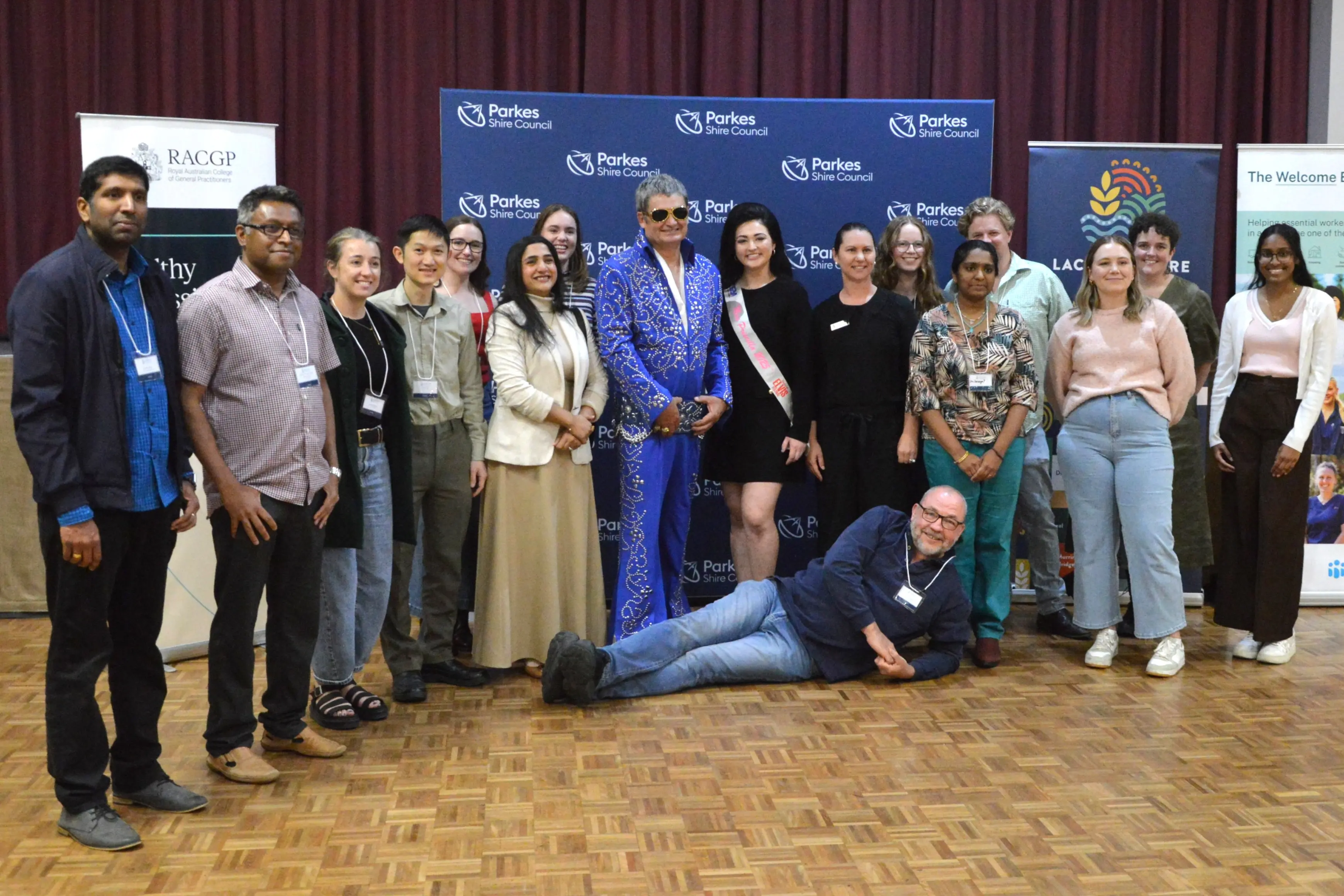PHOTO
54443.0
Western NSW has been on show for two days in an effort to inspire the next generation of GPs to consider a future in the bush.
It's a move regional towns like Forbes and Parkes so desperately need and why the two councils seized the moment to sell the district as a great place to live and work when they came to visit.
Teams from the Royal Australian College of General Practitioners’ (RACGP) education training and rural program provided a unique and immersive education opportunity for Western NSW registrars undertaking their first or second term of GP training.
Visiting Dubbo, Wellington, Parkes, Forbes and Condobolin they took part in small group learning sessions during visits with local health services and benefited from networking opportunities.
Associate Professor Kerrie Stewart, the RACGP’s regional director of training for Western NSW and ACT, said the visit aimed to showcase the incredible support that practices, communities and the broader rural health services provide to GP trainees.
“The RACGP has managed to increase registrar numbers in Western NSW significantly, in-part by incentivising placements within identified communities of workforce need, with around 80-90 expected to seek training placements in the region next year,” Dr Stewart said.
“If we can boost registrar numbers in the bush, they’re more likely to stay here as long term GPs and care for these communities for many years to come."
Parkes played host on the first night of the visit to more than 70 medical students and registrars who joined local doctors, health professionals and representatives from Parkes, Forbes and Lachlan shire councils for dinner at the Parkes Services Club.
In one room the pipeline of the health industry was represented as it presented a chance to network.
Forbes Councillor Jenny Webb, who has a background in the health industry, spoke passionately about the importance of health services in retaining population in regional towns.
“Health probably is the major reason that makes people stick to a town," she said.
"If you don’t have health facilities and you don’t have a doctor around, that’s when your population, I believe, go away to larger towns."
She added that the region is beginning to see progress.
“I think it’s getting there, it really is building momentum," Cr Webb said.
"Ten to 12 years ago we didn’t have this network and they’re slowly realising we’re needing it.”
Dr Stewart said that RACGP continues to urge state and local governments to collaborate and offer key incentives to attract GPs to rural and remote communities including Western NSW.
“We know that support to arrange things like housing, childcare, spousal employment helps boost the attractiveness of working outside of a major city and can make the transition that much easier,” she said.
Cr Webb also highlighted the benefits of diverse and hands-on experience for registrars.
“The fact that we can network and we’re drawing all these registrars coming into our hospital," she said.
"They work in a private practice, but they also work in the ED department, they do stays in medical imaging or pharmacy. They’re learning a whole herd of things, it’s good for them.”
RACGP has also consistently called for more regional and rural placements for medical students and additional support for practices taking in GPs in training whether that be through infrastructure enhancements or direct financial incentives.
Dr Stewart said GPs in training are vital to the future of rural and remote general practice care and every community counts when it comes to building a strong sustainable healthcare system across Western NSW.
Visits like this play an important role in shining a light on the many benefits of living and working in the region.
“All patients, no matter their postcode or income, deserve access to the highest quality of general practice care,” Dr Stewart added.
Lachlan Shire Mayor John Medcalf said the initiative was a welcome step forward.
“I think it’s very exciting because I don’t think anything like this has happened before,” he said.
“Especially with the undergrads, just bringing them into an area like this, exposing them to what the communities are like and what practices are out there.”
Mayor Medcalf agreed that support systems are vital and also highlighted the importance of mentorship and continuity in rural medical services.
“I think we’ve got to sell it to them because everybody’s different about how they go about their working life," he said.
Mayor Medcalf said the visit was more than just a recruitment effort but a chance to build connections.
“I think doing this is the best way. The best form of advertising is work of mouth,” he said.
“Between the three shires (Lachlan, Forbes and Parkes) we’ve done a lot of work over the years trying different ways of attracting people. I think there is a change and I think we’ve just got to keep it up,” he added.





